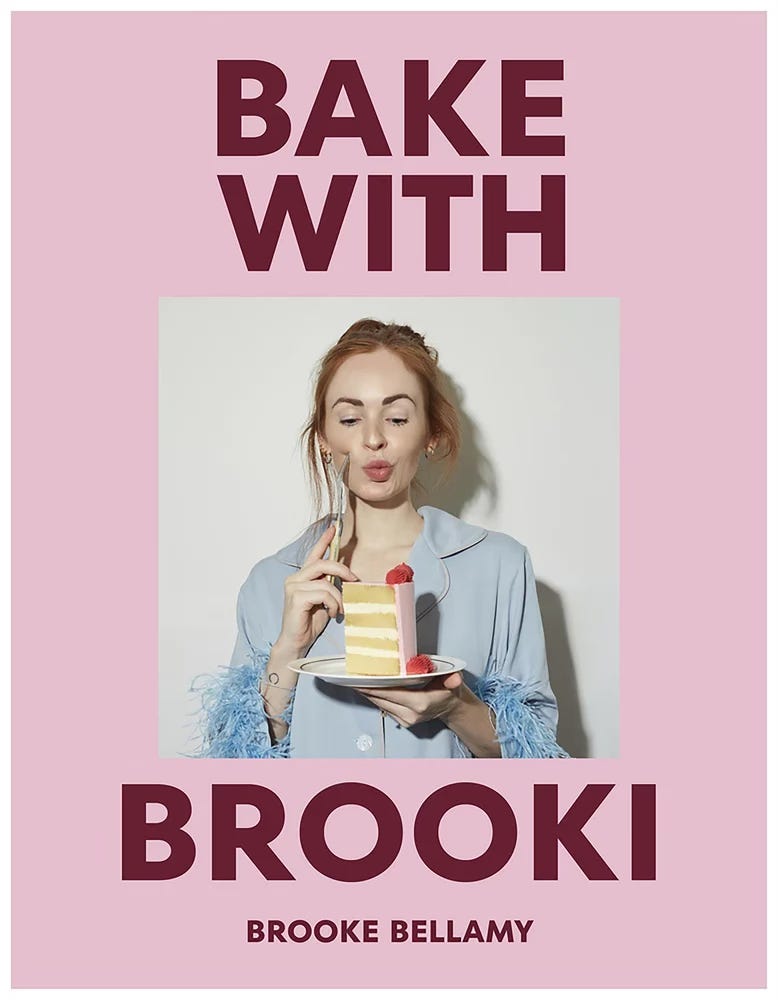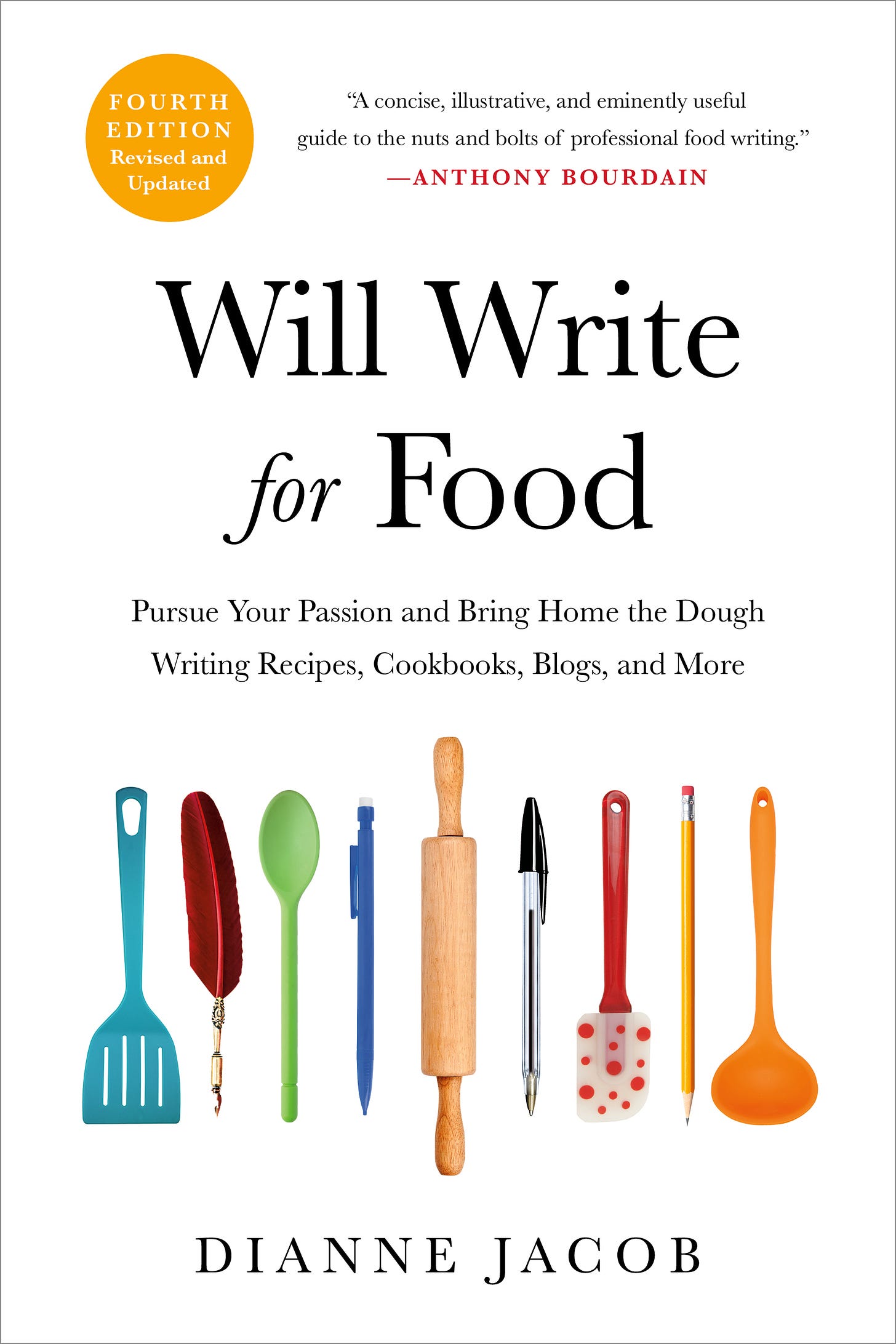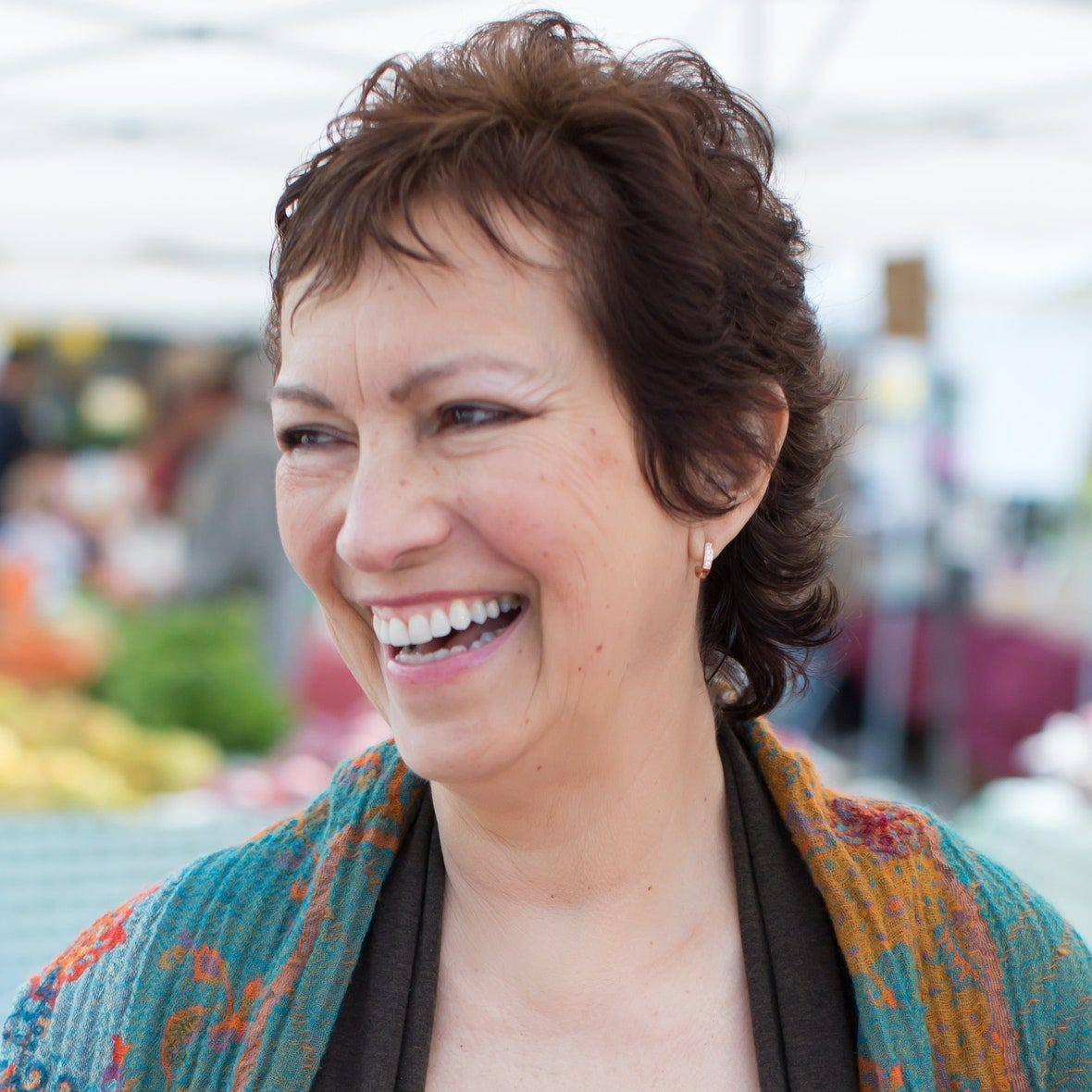Food Blogger Charges Influencer with Plagiarized Recipes
Australian food blogger of RecipeTin Eats argues copyright infringement in a new cookbook.

Influencer and bakeshop owner Brooke Bellamy probably thought she was safe. She wrote a cookbook, Bake with Brooki, that includes adapted recipes, apparently. That’s not so unusual. Many cookbook authors and bloggers adapt recipes.
And now there are charges by Australian blogger and best-selling cookbook author Nagi Maehashi of RecipeTin Eats. Bellamy didn’t take Maehashi’s recipes verbatim, of course. Bellamy probably changed the headnotes to make them specific to her own experiences. She probably re-wrote the instructions (also called the “method”). Maybe she changed a few other things within each recipe. I don’t know if she attributed any of the recipes to the original source. I think not, based on Maehashi’s response!
But the problem came specifically with the ingredients lists in Bellamy’s recipes, which are very close to Maehashi’s.
While other parts of a recipe are copyright about in the U.S. if they show “substantial literary expression,” an ingredients list is not copyrightable. You can’t copyright “1 cup flour,” for example. Even so, most food writers don’t try to copyright their recipe titles, headnotes, or instructions. If they write a cookbook, the entire body of work is copyrighted, and for most, that is sufficient.
Maehashi, however, has the resources to take action. She wrote about her allegations on her Recipe TinEats blog, saying “the similarities between the recipes in question are far too specific and detailed to be dismissed as coincidence.”
Her comprehensive post lays out her copyright infringement allegations against Penguin Random House Australia, Bellamy’s publisher. She’s incredibly thorough in this post. She compares the ingredients list side by side, details how she engaged her attorney, how Bellamy’s publisher responded, includes a FAQ defining plagiarism and answers to questions such as “Isn’t plagiarism illegal in books sold for profit?” She even figured out that Bellamy has made more than $4 million from this new cookbook.
Sally’s Baking Addition blogger Sally McKenney chimed in once Maehashi announced her lawsuit. McKenny also alleged on social media that her vanilla cake recipe was plagiarized in the same manner, by copying the ingredients list.
Bellamy, the cookbook author, fought back against the lawsuit and McKenney’s comment.
“I do not copy other people’s recipes,” Bellamy, 33, told Us Weekly in a Wednesday, April 30, statement. “Like many bakers, I draw inspiration from the classics, but the creations you see at Brooki Bakehouse reflect my own experience, taste, and passion for baking, born of countless hours of my childhood spent in my home kitchen with Mum.”
But if you look at the side-by-side comparison of the ingredients used in Recipe TinEats’ Caramel Slice and Baklava recipes, the lists are almost identical.
According to The Washington Post (in an unlocked article and an excellent analysis of the situation), copyright laws in Australia are similar to those in the U.S. and Britain:
“Copyright law in Australia, where Bellamy and Maehashi are based, follows the same broad architecture as in the United States and Britain, where simple lists of ingredients or recipe steps can’t be protected because they are regarded as an idea.
It is only when there is a highly original expression of instructions or a collection of recipes, such as in a book, that there may be a basis for a claim.”
The court of public opinion has already weighed in. The BBC, The Sydney Morning Herald, The Guardian, The Washington Post, and other news outlets wrote stories about this situation. Social media has gone into overload, creating a “deeply distressing and overwhelming situation” for Bellamy.
As I wrote way back in 2010 on my blog, Adapting a Recipe Doesn’t Make it Yours. That post has 268 comments, and many people argued against it. (I can’t help but point out that the first comment is from Paula Wolfort, the great cookbook author!)
Here are three main ways to protect yourself when writing recipes:
If you are a beginning recipe writer, it is not ethical to copy someone else’s recipe, even if you credit the author. That’s because you have reproduced their work without permission. If you want to use their work verbatim, you must contact the publisher or the owner directly to get permission, which sometimes involves a fee.
Otherwise, here are three tips on how to avoid an unpleasant situation like this:
Don’t fall for the adage that if you “change three major things” in a recipe, you can consider it yours. The key word is “major.” What constitutes “major?” That is the question. Changing the amount of salt or a few spices doesn’t cut it.
Give credit. Mention the cookbook, website or blog where the recipe originated, or where you got your inspiration. My pal David Lebovitz has a great post on this subject.
Don’t start with someone else’s recipe. Take inspiration from a dish you ate a restaurant, a baked good you loved, or a visit to the farmer’s market. Use books on how to pair ingredients, such as The Flavor Bible, to come up with your own take. Look at several recipes to figure out amounts and process, not just one.
What are your thoughts about this situation? Is this lawsuit justified? How do you develop recipes or handle attribution?
My Book
Here’s the latest edition of my multiple award-winning book, Will Write for Food: 2021: Pursue Your Passion and Bring Home the Dough Writing Recipes, Cookbooks, Blogs, and More.
I’m also the co-author of:
Disclosures: I am an affiliate of Food Blogger Pro, Amazon and Bookshop.org. Right now I’m mad at Bookshop.org, because they keep my book on backorder, and no one can order it.
Thanks for Reading
Like this newsletter? Please forward it to a few people or share it on social media. I would really appreciate that. New subscribers can sign up here. Thank you.
If you enjoyed this post, please click on the little ❤️ below ⬇️.
Dianne Jacob
Editor, Writer and Coach
Email: dj@diannej.com
Website: http://diannej.com
X: https://twitter.com/diannej
Facebook: https://www.facebook.com/foodwriting
Instagram: https://www.instagram.com/diannemjacob





OK, gang...here's the deal. Of course I agree with the "credit" comments. But did anyone go after Nagi for "stealing" a common recipe called Millionaire's Shortbread? That is what her Caramel Slice is, with a swap of some coconut for some flour. That recipe was first published in the 90s in an Australian magazine and the cookie has a deeper influence in Oz and the UK than the US. Google the recipe...it has hundreds of manifestations--Preppy Kitchen just did a video on it.
Nagi cannot win her case in the US. There have been precedents, and the plaintiff's wins were based on the verbatim use of the recipe text, not the formula of the ingredients list, which has been proven to be non-copyrightable. Richard Olney sued Richard Nelson and won (settled out of court) in the 70s. https://www.lexology.com/library/detail.aspx?g=616c3194-d55b-4c53-a4ba-8ef64b57fe72
Another high-profile case was the late Chinese cooking expert, Barbara Tropp vs. Martha Stewart. Martha had published a sweet-sour eggplant dish called Strange-Flavor Eggplant, which was Barbara's. And there were two other recipes. Barbara was able to prove that the eggplant recipe's title does not exist in the Chinese lexicon, and was her invention all-around. And she won.
Nagi's baklava is pretty similar to any baklava ever made. And if proper listing of ingredients in the order they are supposed to be used is good practice, you are going to see similar recipe lists.
What bothers me is that Brooki doesn't seem to have any scruples about stealing or "sharing" recipes. My recipes, especially my Viennese ones, are all over the web. When I have the energy, I reach out to the blogger. Usually, they have stolen the recipe from a previous poster anyway! But what do I publish recipes for if not to impact the reader in some (hopefully good) way?
A lot of grief could have been avoided if basic standards of decency (like not stealing in general) would have been followed.
Part of being a great baker is learning to identify quality recipes. Some recipes, like pie crust, shortbread, and, like Rick says, Millionaire's Shortbread, have been around for so long that it's hard to be entirely original. I realized this in the writing of my book. I have so many great bakers to thank for inspiring my recipes, and in the headnotes of my cookbook, I do my best to credit those folks who taught me a technique, ratio, flavor combination, or other aspect of a recipe.
Even though I'm a newish recipe writer, I've already had a couple of well-known writers steal some of my recipes without credit. Alternatively, other writers asked permission to adopt parts of my recipes, with credit given (I always say yes). I think it depends on whether you're a writer who comes from a place of collaboration, abundance, and generosity or competition, gatekeeping, and scarcity.